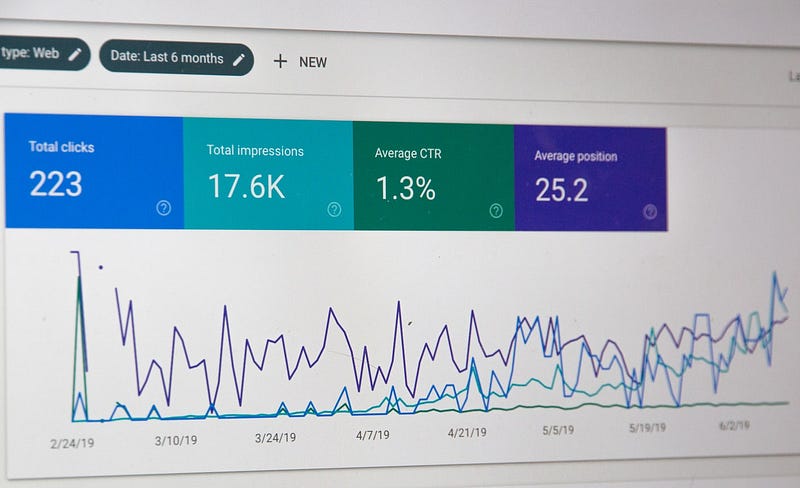If you run a local small business, you’re definitely going to want to read this.
First, let’s get this out of the way — what’s the purpose of a small business? Learning how to advertise means jack squat if you don’t know why you’re doing it.
Really dig deep for this. Take a day off. Stare at the ceiling. Think hard. Then, when you believe you finally have the answer…
Throw it out. Because most of the time, your answer won’t help you make money.
Repeat after me: the only purpose of your small business is to generate cold, hard cash. As much of it as possible, in as short a period of time as possible. Because cash is freedom. Cash lets you grow, influence, and change. Without cash, you’re not a small business.
You’re just a hobby.
How To Generate Cash
So how do we generate cash, first and foremost? Most local businesses, yours included, generate your money through sales. You sell either a physical product, a virtual product, or a service. Which begs the question…
How do we generate sales?
Well, you need people to purchase your product or service. In business, these people are called leads.
And how do we generate leads?
Advertising.
Therefore, if you want leads, which turn into sales, which turn into cash… you need to learn how to advertise. And advertise well. Luckily for you, local advertising is actually the best form of advertising, if you know how to play it right. In fact, I’ve built a business doing just that.
What follows are 4 big ways that my clients have generated leads (which turn into sales, which turn into cash) in Vancouver and other cities for cheap.

Most people, when they hear Facebook, instinctively recoil with something like “well Facebook just doesn’t work for my business” and leave it at that.
I think of Facebook marketing like a car. How far you go and how quickly you get to your destination depends mostly on the skills of the driver — not on the vehicle itself. Therefore, if you’ve tried Facebook in the past to no avail, it’s more likely that it was your fault, not Facebook’s fault.
Local Facebook groups are, hands down, the cheapest way to advertise. Many businesses I know make their living off of this strategy, and you can too (so long as your city has at least a few Facebook groups around)
For the purposes of this example, let’s pretend you’re a doggie daycare in Vancouver.
- Find as many Facebook groups that include the words “Vancouver” and “Dogs” as you can.
- Join each group.
- Don’t post immediately — instead, read through the last 50 posts to familiarize yourself with the group culture and the style of posts that do well.
- Once you have an understanding of what works well in this group, write a one to three paragraph post that offers value to this group. For example, if your group is Dogs in Vancouver, write a post detailing the best way to groom your dog for our wet, rainy Vancouver weather. Attempt no sales whatsoever in this post — your goal is not to sell (yet).
- Wait three to five days, then create 8–10 more posts with a similar premise, each of which that add value to the group. Post each in a 3–5 day period. Always speak from the first person — from your experience — rather than using generalizations or “sales” talk. Reply to comments.
- It’s been over a month. You should now be a relatively established, somewhat authoritative figure in this community. Now it’s time to sell. Create another post that adds value, and at the very tail end of the post, write something like “P.S — thinking of starting a doggie daycare downtown Vancouver. What do you guys think?”. If you’ve down this correctly, you will get a ton of interest despite not being pushy whatsoever. People love value.
- From now on, you can advertise your doggie daycare. Don’t spam, obviously — keep adding value to your group. But you can change from providing 100% value and 0% sales to perhaps 80% value and 20% sales. Over time, as people grow more and more accepting of you, you can increase the proportion of sales:value.
This method works, and it doesn’t cost a cent.
Of course, it technically costs your time communicating and replying to your potential customers — but if starting and operating a successful small business is something you want to do, this is just a fact of life. Get used to it.

I’m shocked at the number of local businesses that still haven’t claimed their Google My Business profile. Google My Business is literally free advertising. Off the top of my head, I know dozens of businesses that make the vast majority of their money just from Google My Business alone — and they’ve never spent a cent.
To get yours up and running:
- Go to https://business.google.com/add
- Type in the name of your business
- If Google has already indexed it, your business will show up instantly. You simply need to “claim this listing”.
- If it hasn’t, you can go right ahead and “create a listing”.
- Both of the last two steps will require verification, either via phone call, SMS, or a physical postcard sent to the business address
Fill out all information. Try using natural keywords in your descriptions — i.e, for our doggy daycare example, use variations of Dog Daycare in Vancouver as many times as possible. Make sure you also link a website to the profile for maximum search engine results.

If you’ve never run Google Ads before, I don’t recommend doing it yourself. I recommend paying a professional to start, and learning little by little as you go.
Think of it this way: since you’ll be spending money on Google Ads anyway, you might as well squeeze as much juice out of every dollar as possible. If you have a $1000/month advertising spend, and you do it yourself, that’s all you’ll ever spend on Google Ads. Awesome!
But if you don’t know what you’re doing, you likely won’t do very well. Google Ads is one of those things where a little knowledge goes a long way. So by managing it yourself, your $1000/month might only generate you $1100/month in revenue. And take up a big chunk of your time.
Instead, if you have a $1000/month advertising spend, and you hire someone someone else to manage it for you at $500/month, you’re now effectively paying $1500/month. But let’s say that $1500/month now generates you $4500/month (which is a relatively average feat for most industries using Ads). You’ve now went from a 1.1x ROI (above) to a 3x ROI.
Basically, you were spending $1 (and your time) to make $1.1. Now you spend $1 to make $3 — with little to no time investment!
You’ll notice I wrote $400+ above. You’re probably asking “why?”
The thing about Google Ads (that Google will never tell you) is that small budgets will almost never work. You need to spend enough money for your advertising campaign to collect a healthy sum of data with which to make decisions off of. Campaigns are almost never profitable right off the bat — they require diligent optimization and testing to achieve profitability, which includes swapping headlines, changing demographics, and building custom landing pages for each audience.

Similar to Google Ads above, Facebook Ads have worked incredibly well for many businesses. But most local businesses do not find the average Facebook ad profitable. This is because local businesses, out of necessity, need to work off of a much smaller local market. So the style of advertisement you probably see in your Newsfeed all the time won’t work — instead, you need to get creative.
Again, Facebook ads have their place — but to really take advantage of them, you need to understand how Facebook targeting works. And for that, you’re usually better off with a professional. But it doesn’t hurt learning how to get started.
Facebook has a couple of special ad variants. One, the Offer Ad, is where you create a highly inciting offer — let’s say “Just $200 For One Full Week At Vancouver Doggie Daycare” — and let people claim coupons for that offer. These work incredibly well for restaurants and some service based businesses because Facebook will continually notify whoever has claimed your offer that it’s going to expire soon, making this style of advertisement have a very low cost per customer acquisition.
The second type is the Lead Generation Ad. Here, you create another enticing offer and Facebook will create a form inside of the Newsfeed itself (you don’t need a website for this). Prospects are then required to fill out some basic contact information, like email address, name, and phone number. As a business owner, your job is then to call or email them as quickly as possible to leverage their interest into a purchase.

Congratulations! If you’ve followed all of the advice above, you’re probably now a millionaire sipping Pina Coladas on a huge golden yacht somewhere. I’m proud of you.
For those of you that haven’t started, do it. Get moving. Businesses don’t grow if their founders don’t change, take risks, and grow. You included. If you want something you’ve never had — like limitless wealth and happiness — you need to do something you’ve never done. Like advertise.



